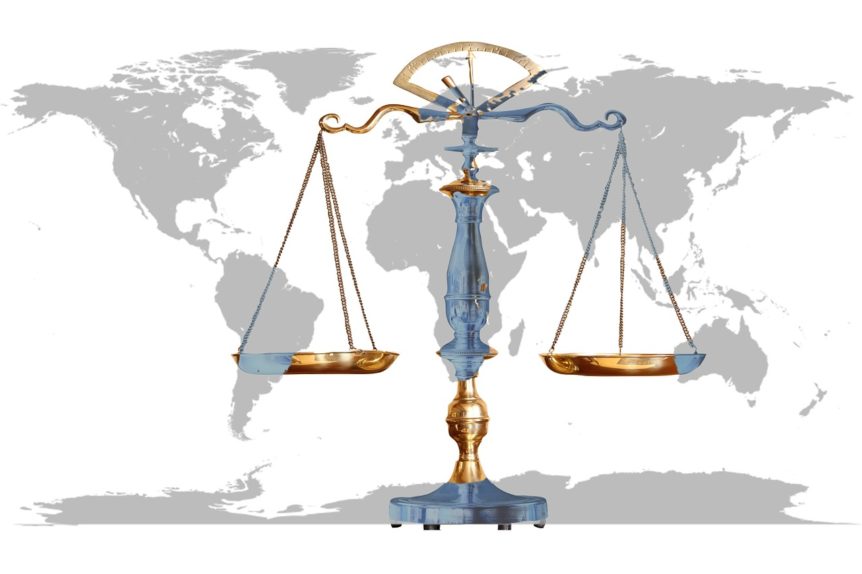Remember when Australian WikiLeaks founder Julian Assange sought refuge in the Ecuadorian embassy in London to avoid getting extradited to Sweden in 2012? Well, it looks like his extradition woes had only just begun. At the time, he was facing sexual assault charges, which have since been dropped.

He was granted asylum by Ecuador to avoid possible extradition to the US to face 18 federal conspiracy charges related to leaking classified government secrets. However, in an unprecedented turn of events, Assange’s asylum was withdrawn and was subsequently arrested by the UK authorities.
UK’s home secretary Sajid Javid approved the extradition request, which might see him extradited to the US once he finishes his 50-week stint in a UK jail for jumping bail. The decision as to whether or not the request will be fulfilled ultimately lies with the courts.
It is the most talked-about extradition example in modern times. This article deciphers everything you need to know about the process.
What Does Extradition Mean?
The term refers to the formal process where one state surrenders an individual to another state to answer for crimes they committed in the latter state’s jurisdiction. The individual would then be prosecuted and, if found culpable, is subject to the punishment prescribed by the state’s governing law for their respective criminal activities.
This arrangement is facilitated by an existing bilateral or multilateral extradition treaty. In some instances, some non-extradition states can extradite without a treaty. However, such cases are few and far between.
Extradition Law 101: The Basics
First, before any two countries can extradite individuals to each other, a treaty between the two countries needs to exist. The US has treaties with more than 100 extradition countries across the globe as well as those within the European Union. Extraditable crimes generally include offenses that are punishable by a prison term of at least one year in both countries.
They include conspiracy or attempt to commit the offense in question, as well as special inclusions for offenses that involve foreign exchange, taxes, or customs duties. Treaties often exclude the extradition of an individual who happens to be a national of the requested state. So, if another country requested the US to extradite one of its citizens, that request would effectively be denied.
In other instances, states can refuse to grant requests if the offending individuals face the possibility of torture or capital punishment. When notorious serial killer Charles Ng fled to Canada, Canada weighed whether it should grant the US its extradition request.
This came after Canada had abolished the death penalty, whereas the US had not. In the end, they ultimately decided to extradite him since they didn’t want to set a precedent that would make the country a safe-haven for murders. When they did, they could have negotiated the terms to demand that Ng wouldn’t face capital punishment. Instead, they sent him back without any assurances whatsoever.
The Process: How It Works Between Countries with a Treaty
When the US wants to extradite someone residing in a foreign state with which it has a treaty in effect, the process begins by filing a complaint in any US court. The complainant has to stipulate the charges and abide by the treaty requirements.
Next, an extradition warrant will then be prepared by the courts and issued to the State Secretary, who will then proceed to contact the foreign government. This marks the beginning of the international extradition process. The requested state will then refer to the treaty obligations and also into its internal laws. This will inform its decision on whether or not to approve the request.
Several countries do not extradite individuals facing political crimes like espionage, treason, sedition, and those relating to criticism of political leaders. If you’re wondering how long an extradition process takes from request to surrender, the answer is, it varies widely. Cases involving the US take more than a year on average.
Extradition Without a Treaty
For countries with no extradition treaty with the US, it is still quite possible to extradite an individual who has committed a crime within the offending country’s jurisdiction. In such instances, the US has to negotiate with the non-extradition country. However, they might still reject the request. This is what happened with Julian Assange when he took refuge in the Ecuadorian embassy in London.
Since Ecuador doesn’t have a treaty with the US, it reserved the right to refuse to surrender him to the US authorities. Theoretically, Assange could have chosen to remain at the embassy until his death. However, when the Ecuadorian authorities got tired of his behavior, they withdrew their asylum, at which point he could then be arrested by the London police.
Some of the countries with which the US does not have treaties include China, Russia, North Korea, Iran, and several Middle Eastern, formerly Soviet, and African countries.
The Infamous Hong Kong Extradition Bill

The Hong Kong government attempted to pass a law that would allow extradition to mainland China and all other jurisdictions that didn’t have an existing agreement with the region. Despite Hong Kong being part of China, it has always enjoyed a high degree of autonomy, which includes capitalist markets and free speech.
If the bill was signed into law, the US risked losing its special customs status with Hong Kong. The region’s exports to the US are not subject to the restrictive tariffs the Trump administration imposed on goods coming from mainland China. The bill has since been formally withdrawn following widespread pro-democracy protests that marred the region.
Keeping Interstate Crime at Bay
Given the spread of transnational crimes that transcend state borders, the extradition process has never been more important than it is today. It allows countries to crack down on individuals involved in terrorism, cybercrime, drug trafficking, and counterfeiting.
Nonetheless, even with airtight treaties in place, extraditions can sometimes become entangled in geographical and political friction, which can render an otherwise straightforward process, lengthy and complicated. In such cases, it is always a good idea to talk to an attorney.
